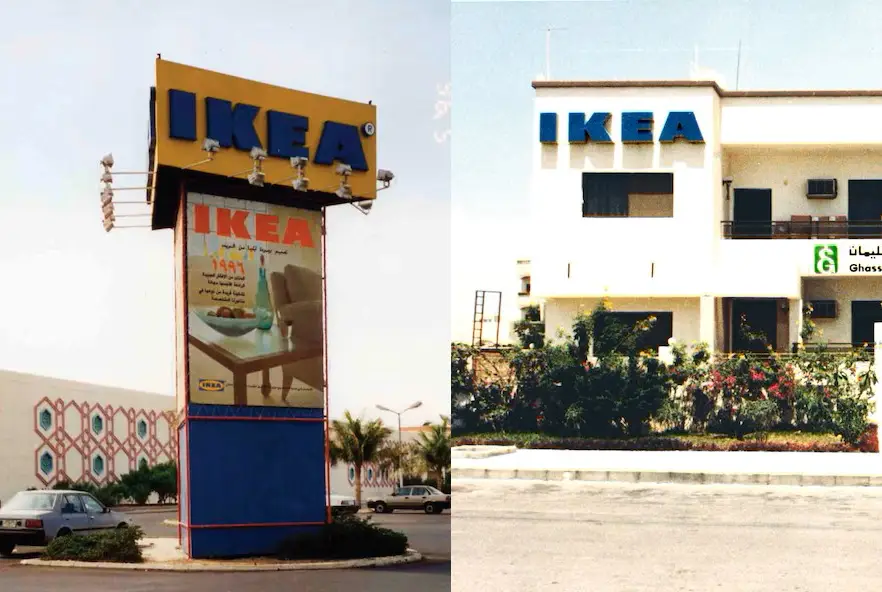
The First Franchise Store of Ikea in Saudi Arabia 1983
Dubai, UAE – Franchising is playing an increasingly pivotal role in Saudi Arabia’s economic development, driving job creation, government revenue, and cultural transformation in a rapidly evolving nation. The sector’s expansion has been significantly bolstered by regulatory reforms and economic initiatives under Vision 2030, positioning the Kingdom as the dominant force in the Middle East and North Africa’s (MENA) $35 billion franchise market.
Economic experts highlight that the introduction of Saudi Arabia’s Franchise Law in 2019, followed by expanded regulations in 2020, has opened the market to international businesses while strengthening the relationship between franchisors and franchisees. Yaseen Ghulam, Associate Professor of Economics at Al-Yamamah University in Riyadh, noted that these measures, coupled with the Kingdom’s economic expansion, have enabled Saudi Arabia to capture nearly half of the region’s franchise market. He further emphasized that franchise businesses in the Kingdom are projected to grow by more than 20% annually over the next five years, presenting a prime opportunity for global brands to enter Saudi Arabia, particularly as consumer markets in Europe and North America face economic uncertainty.
The franchise industry in Saudi Arabia is thriving across multiple sectors, with the accommodation and food services industry leading the way, accounting for 1,232 franchise registrations as of Q3 2024. Wholesale and retail followed with 689 registrations, while the transport and storage sector recorded 257. Notably, franchise growth is no longer concentrated in specific regions but is expanding across major cities, with Riyadh recording 647 registrations, Makkah 363, and the Eastern Province 225. According to estimates, over 1,200 brands are currently available for franchising in Saudi Arabia, offering more than 10,000 business opportunities.
Government support has been a key enabler of franchise sector growth. Abdullah Al-Maghlouth, a member of the Saudi Economic Association, explained that streamlined business processes and a pro-investment environment have attracted local and international investors. The implementation of executive regulations in 2020 further strengthened the franchise ecosystem by ensuring transparency and legal protections for all parties. Additionally, initiatives such as Monsha’at’s Franchise Center, financial support programs like Kafalah, and the Social Development Bank’s financing solutions—ranging from SR150,000 ($40,000) to SR4 million—have made franchising more accessible to entrepreneurs. The establishment of the Saudi Franchise Association has also played a vital role in promoting business excellence and fostering partnerships across industries.
Saudi Vision 2030 has reshaped the Kingdom’s business landscape, creating vast opportunities for franchisors and investors. With its emphasis on economic diversification, private sector growth, and job creation, the initiative has spurred demand for franchises in food, retail, education, healthcare, fitness, and technology. Rising investments in mega projects, sports events, and infrastructure have not only generated employment but have also fueled consumer spending, making Saudi Arabia an attractive destination for international franchise expansion. As the sector continues to evolve, experts predict that beyond traditional industries like tourism and hospitality, franchising in Saudi Arabia will expand into emerging fields such as e-commerce, technology, and healthcare, further solidifying the Kingdom’s position as a premier investment hub in the MENA region.
Saudi Arabia has established itself as the global leader in master franchising for food and beverage (F&B) brands, hosting more master franchise agreements than any other country. The Kingdom’s deep-rooted franchise history and its strategic location have made it an attractive destination for global brands seeking expansion into the Middle East.
One of the most notable milestones in Saudi Arabia’s franchising history is IKEA’s first-ever franchised outlet in the Middle East, which was opened by Al Sulaiman Group in the Kingdom. This marked a significant shift in the retail industry, demonstrating Saudi Arabia’s early adoption of the franchise model for international brands. Today, the country remains a key market for global franchises, with major players across various sectors choosing Saudi Arabia as their gateway to the region.
Saudi Arabia was also the launchpad for two of the world’s largest fast-food chains in the Middle East. The first McDonald’s was opened in 1973, and a KFC outlet after Kuwait in 1975 was opened in Saudi, further cementing the Kingdom’s status as a pioneer in the franchising industry. These early openings paved the way for the rapid expansion of international fast-food brands, leading to the flourishing F&B franchise sector that dominates the Saudi market today.

